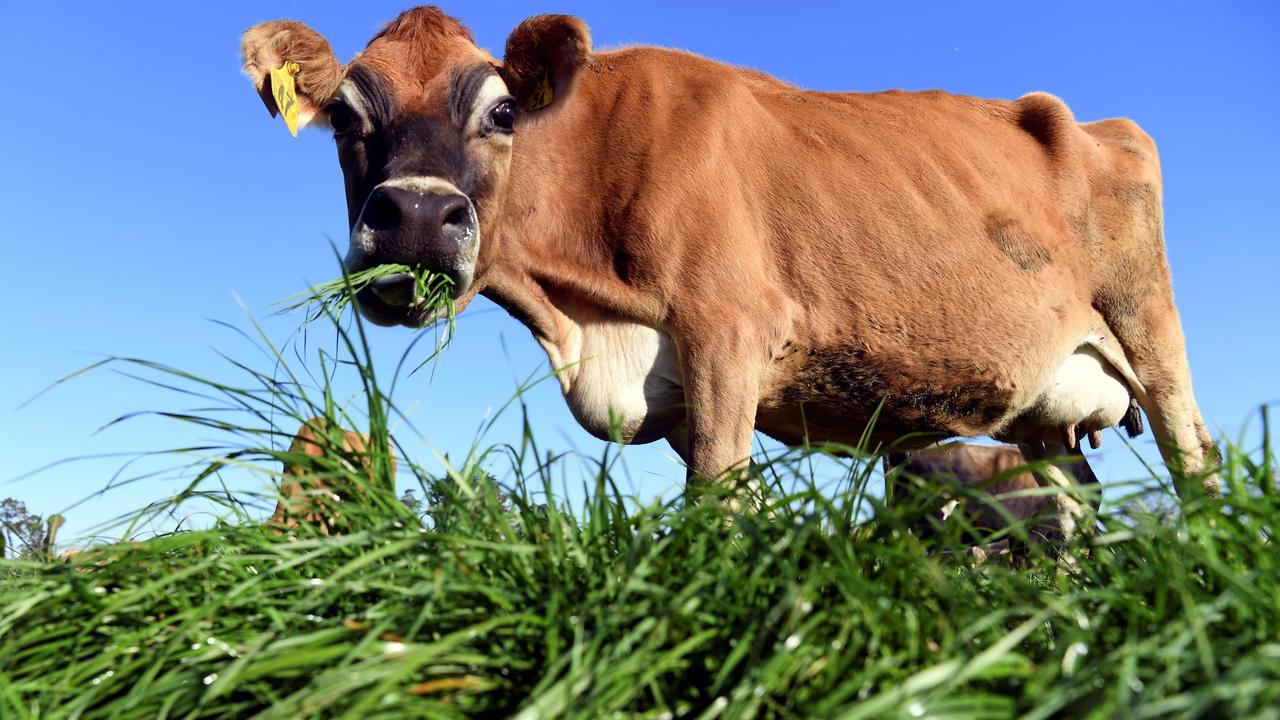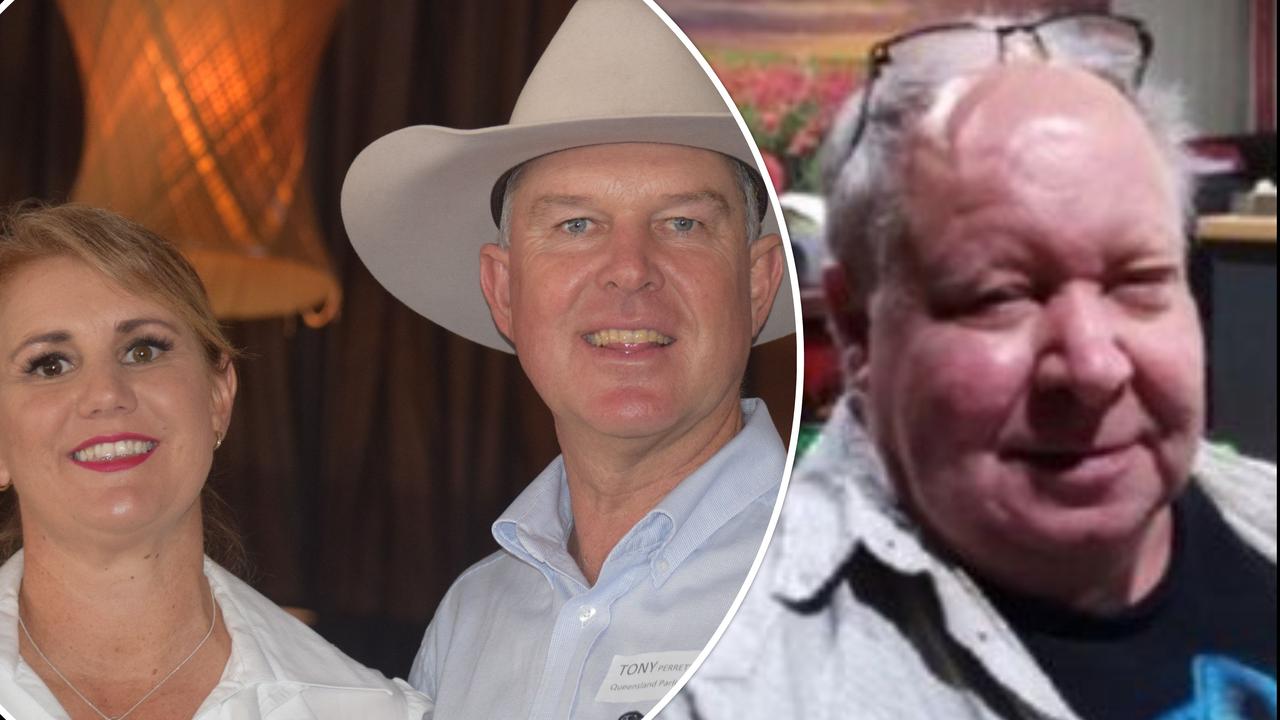Tim Tams, Milo, Cottee’s cordial: Foreign companies that own Aussie food
Would you think Tim Tams and a Chiko Roll are as Aussie as Vegemite? Our special report looking at Australia’s most-iconic food brands reveals some interesting findings of how they started and who owns them now.
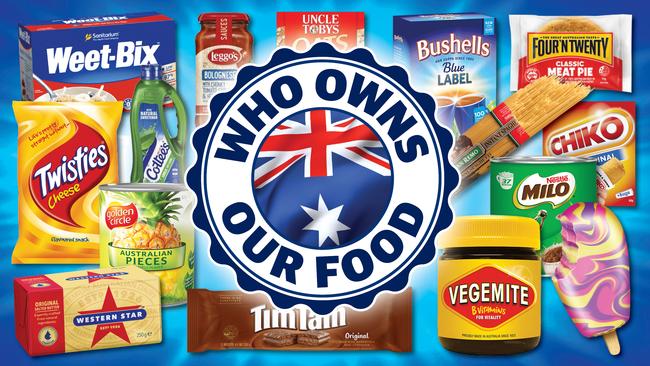
MOST iconic Aussie food brands founded right here in Australia are now owned by giant foreign companies.
An investigation by The Weekly Times of 35 iconic Aussie foods has found only eight are Australian-owned. And three of those brands – Four’N Twenty, Vegemite and Rosella – were only put back into Aussie hands in the last two decades.
More than half of the 35 began as small Australian family-owned businesses that grew to become household names. And another four were originally local farmer co-operatives.
Today the United States is the biggest owner of the major brands, holding 11, followed by the UK (including British-Dutch giant Unilever), with five, and Switzerland, the home of Nestlé, with four. Others are owned by companies in Japan, Singapore, New Zealand and the Philippines.
How and when many of the brands first fell out of Australian hands is unclear, with complex histories of acquisitions, mergers, amalgamations and spin-offs.
University of Melbourne consumer psychologist Dr Brent Coker said Australian food brands were attractive to foreign companies because our production is considered high quality and iconic brands were known as “cash cows” because they had “deep roots”.
“A lot of products have a life cycle … but cash cows are long-term and reliable,” Dr Coker said.
“Arnott’s changed its logo recently, their corporate logo, and everyone was complaining about it on social media and freaking out and that’s kind of the power these brands have – the iconic status.”
Dr Coker said many consumers would be surprised to know who owned Australia’s iconic foods, and while it’s in Australia’s best interest to have control over its food, there was a “disconnect of what consumers think is happening and what’s actually happening” with foreign ownership.
Dr Coker said it was more important consumers knew where the food was made, as foods made in Australia were still required to be at an Australian standard of quality no matter who owned them.
“The food ingredients (labelling) is the big one,” he said. “Made from local and imported ingredients is about the extent put on food products and it’s insufficient and not enough.”
SEE WHERE SOME OF OUR FAVOURITE AUSTRALIAN FOODS STARTED AND WHO OWNS THEM NOW.
AEROPLANE JELLY
OWNERSHIP: McCormick Foods Australia, owned by McCormick & Company (US)
Aeroplane Jelly grew to become Australia’s largest family-owned food manufacturer until it was acquired by McCormick Foods Australia in 1994.
WHERE IT STARTED: Aeroplane Jelly has been around since 1927 when tram driver Bert Appleroth first made jelly crystals in his bath tub and distributed them along his Sydney tram route.
BERRI JUICE
OWNERSHIP: Lion, owned by Kirin (Japan)
Berri Limited fell fully into foreign hands in 2005 when Philippines-based San Miguel Corporation acquired a remaining 49 per cent stake from privately-owned Australian company ICM Australia. In 2005, Berri Limited merged with National Foods. In 2007, San Miguel sold 100 per cent of National Foods, now Lion, to Kirin.
WHERE IT STARTED: Berri juice was first produced in 1943 by five farming families in Berri, South Australia. In 1987, the original families all relinquished their directorship of the company so they could go back to concentrating on their original farms to remain the core of the fruit supply.
BUSHELLS TEA AND COFFEE
OWNERSHIP: Unilever (British-Dutch)
Unilever bought Bushells in 1988.
WHERE IT STARTED: Alfred Bushell opened his first tea shop in Brisbane in 1883. After Alfred’s death in 1910, Bushells was registered as a public company.
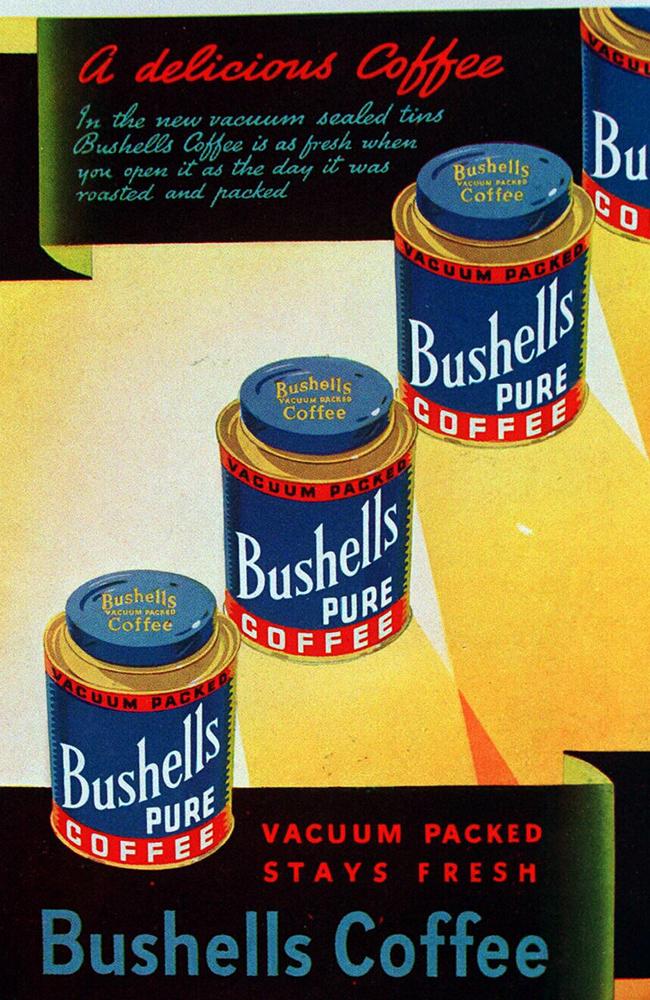
CARMAN’S MUESLI AND CEREAL
OWNERSHIP: Carman’s Fine Foods (Australia)
Carman’s is still a family-owned Australian business.
WHERE IT STARTED: Carman’s was founded in 1992 when Carolyn Creswell bought the Melbourne homemade muesli company she worked part-time at for $1000 at just 18 years of age.
CHEEZLES
OWNERSHIP: Snack Brands Australia owned by Universal Robina (Philippines)
Snack Brands Australia was sold to Universal Robina in 2016.
WHERE IT STARTED: Cheezles were first created in 1971.
CHERRY RIPE AND FREDDO FROG
OWNERSHIP: Cadbury, owned by Mondelēz International (US)
MacRobertson’s, which created Australia’s oldest chocolate bar, the Cherry Ripe, was an Australian family-owned company based in Melbourne, until it was sold to Cadbury in 1967.
WHERE IT STARTED: Macpherson Robertson started the confectionery company, MacRobertson’s, in his mother’s bathroom in the 1880s. In 1924, the Cherry Ripe was introduced, followed by the Freddo in 1930.
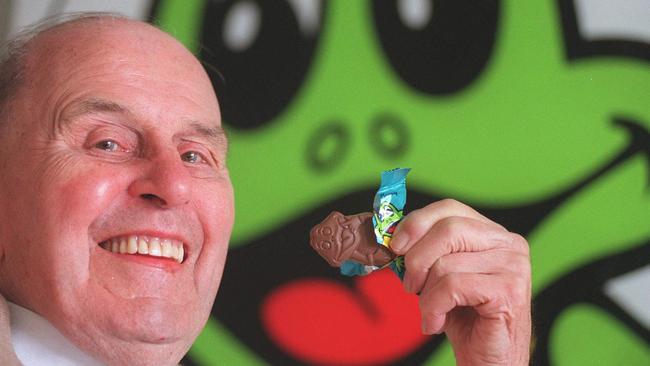
CHIKO ROLL
OWNERSHIP: Simplot Australia, owned by J.R.Simplot Co. (US)
Simplot Australia acquired the brand in 1995.
WHERE IT STARTED: The Chiko Roll was developed by Frank McEncroe from Bendigo, Victoria. The Chiko Roll made its first appearance at the Wagga Wagga Agriculture Show in 1951.
COTTEE’S CORDIAL
OWNERSHIP: Asahi Lifestyle Beverages, a member of Asahi Group Holdings (Japan)
Schweppes Australia and the brand Cottee’s was acquired by Asahi Breweries, now known as Asahi Lifestyle Beverages, in 2009.
WHERE IT STARTED: Cottee’s was founded by NSW dairy farmer Spencer Cottee in the 1920s. It was sold to multinational General Foods in 1966.
As an aside, Spencer Cottee’s great granddaughter is an agribusiness reporter for The Weekly Times.
EDGELL CANNED VEGIES
OWNERSHIP: Simplot Australia, owned by J.R.Simplot Co. (US)
Simplot acquired Edgell in 1995.
WHERE IT STARTED: The Edgell family’s first cannery was established at Bathurst, NSW, in 1926.
FANTALES AND MINTIES
OWNERSHIP: Allen’s, owned by Nestlé (Switzerland)
Nestlé acquired the Fantales and Minties brands in the 1980s.
WHERE IT STARTED: Minties were created by Sweetacres in 1922 at Rosebery, NSW. Fantales followed in 1939.
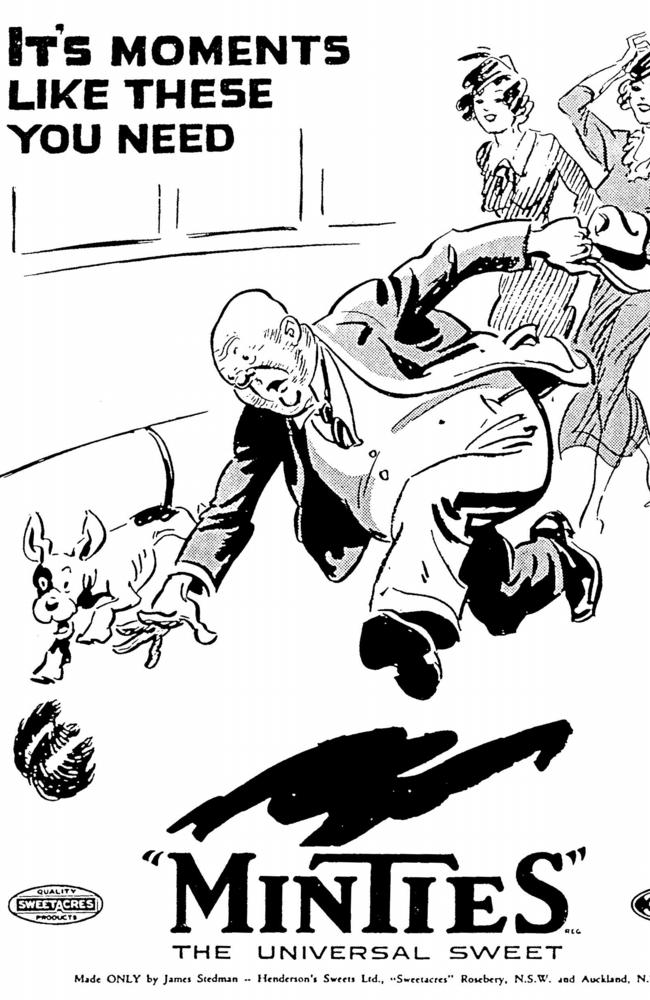
FOUR’N TWENTY PIE
OWNERSHIP: Patties Foods, owned by Australasian Foods Bidco Pty Ltd (Australia)
Patties Foods purchased Four’N Twenty from US company Simplot in 2003, putting the brand back into Australian hands.
WHERE IT STARTED: The Four’N Twenty pie was created in Bendigo, Victoria, by Leslie Thompson McClure in 1947. It is now made in Bairnsdale.
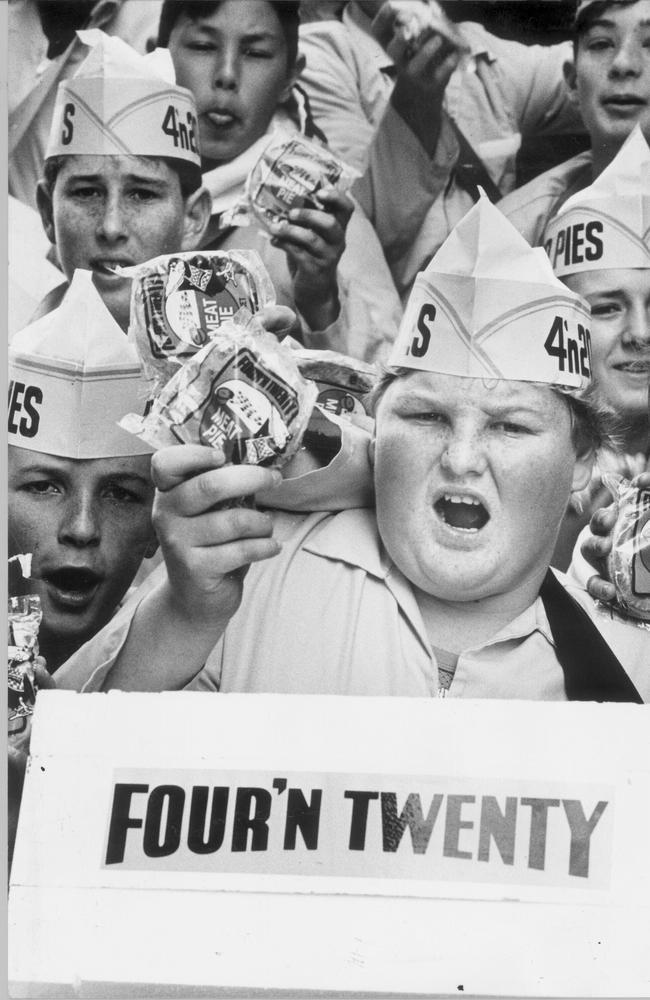
GOLDEN CIRCLE JUICE AND CANNED FRUIT AND VEGIES
OWNERSHIP: Kraft Heinz Company (US)
The Australian unit of H.J. Heinz Co acquired Golden Circle in 2008.
WHERE IT STARTED: Golden Circle began as a grower co-operative in the 1940s with the pineapple cannery commencing production in Northgate, Queensland, in 1947.
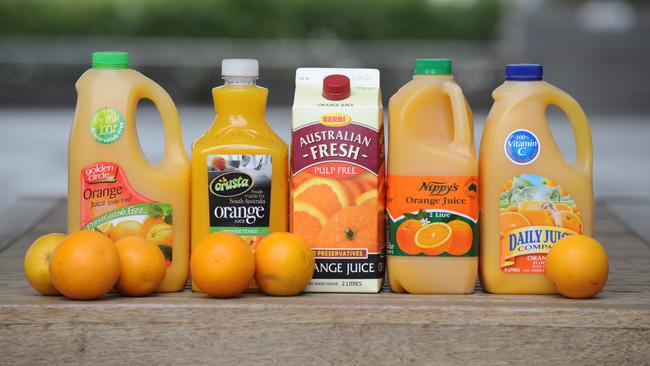
LEGGO’S PASTA SAUCE
OWNERSHIP: Simplot Australia, owned by J.R.Simplot Co. (US)
Simplot acquired Leggo’s in 1995.
WHERE IT STARTED: In 1882, 13-year-old Henry Madren Leggotook a job with a local grocer in Bendigo, Victoria, and outside of work sold his mother’s bottled tomato sauce and pickles to gold miners in their camps. Six years later, Henry bought the grocer businessand began producing vinegar, pickles, sauces, cordials and other grocery goods based on his mother’s traditional recipes.
MILO
OWNERSHIP: Nestlé (Switzerland)
WHERE IT STARTED: Milo was first launched in 1934 at Sydney’s Royal Easter Show. Milo was created by chemical engineer Thomas Mayne from Smithtown, NSW, for Nestlé.
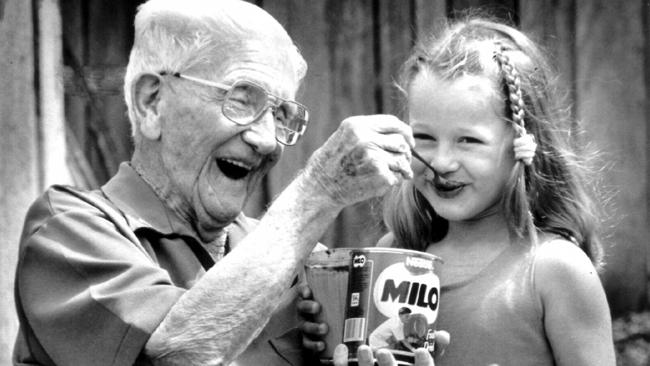
THE NATURAL CONFECTIONERY COMPANY
OWNERSHIP: Mondelēz International (US)
In 2003, The Natural Confectionery Co. was bought by Cadbury, now owned by Mondelēz.
WHERE IT STARTED: It is understood the brand was founded in 1992 by Melbourne company Sunrise Confectioners.
PADDLE POP AND GOLDEN GAYTIME
OWNERSHIP: Streets, owned by Unilever (British-Dutch)
Unilever acquired Streets in 1960.
WHERE IT STARTED: Streets ice cream was founded by Edwin ‘Ted’ Street at his home in Corrimal, NSW, in the 1930s.
ROSELLA SOUP AND TOMATO SAUCE
OWNERSHIP: Sabrands (Australia)
Australian family-owned company Sabrands “rescued the iconic label” in 2013 and “immediately set about restoring the original vision for the brand”, according to Rosella’s website.
Rosella fell into foreign hands in 1963 when it was snapped up by Lever & Kitchen, which became Unilever. It was back in Australian hands in 2002 with Stuart Alexander and Company before being acquired by Gourmet Food Holdings, which went into receivership in 2012. Rosella was then bought by Sabrands.
WHERE IT STARTED: Rosella began in a Carlton, Melbourne, backyard in 1895.
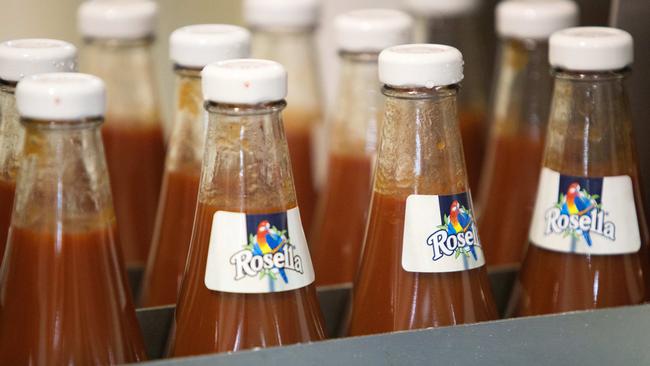
SAN REMO PASTA
OWNERSHIP: San Remo (Australia)
San Remo remains a privately-owned Australian company.
WHERE IT STARTED: San Remo was founded in Adelaide in 1936 by Luigi Crotti.
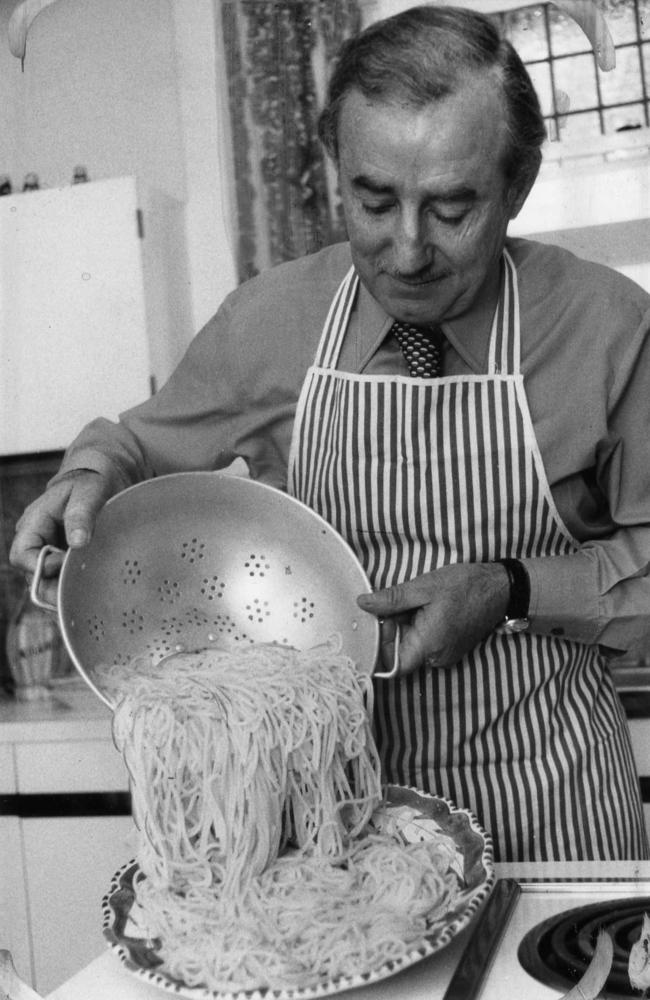
SPC
OWNERSHIP: Shepparton Partners Collective (Australia)
ASX-listed Coca-Cola Amatil, who acquired SPC in 2005, sold the business to Shepparton Partners Collective in 2019. Shepparton Partners Collective is a joint venture between finance house Perma Funds Management and private equity firm The Eights.
WHERE IT STARTED: In 1918, a group of growers formed a co-operative called the Shepparton Preserving Company (SPC) to process their produce in Victoria’s Goulburn Valley. In 2002, SPC and Ardmona, another grower co-operative incorporated in 1921, merged to form SPC Ardmona.
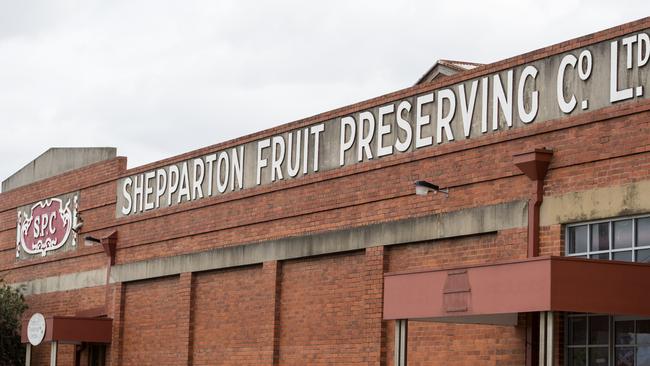
SUNRICE
OWNERSHIP: Ricegrowers Limited (Australia)
Ricegrowers Limited, trading as SunRice, is a publicly-listed Australian company.
WHERE IT STARTED: SunRice was formed in 1950 when rice growers pooled funds to establish a co-operative and built a rice mill at Leeton in the NSW Riverina.
TIM TAMS AND SHAPES
OWNERSHIP: Arnott’s Biscuits, owned by KKR & Co. Inc. (US)
Campbell’s Soup, a US company which bought Arnott’s in 1997, sold Arnott’s to US private equity firm Kohlberg Kravis Roberts in 2019.
WHERE IT STARTED: William Arnott opened his first factory making biscuits in Newcastle, NSW, in 1865. Tim Tams were released in 1964, becoming Arnott’s most popular biscuit of all time. Shapes were first produced in 1954.
Arnott’s are also the creators of the Iced VoVo, Tiny Teddy and Scotch Finger.
TIP TOP BREAD
OWNERSHIP: George Weston Foods, owned by Associated British Foods (UK)
WHERE IT STARTED: Tip Top was founded by an amalgamation of several small bakeries in NSW and Victoria in the 1940s.
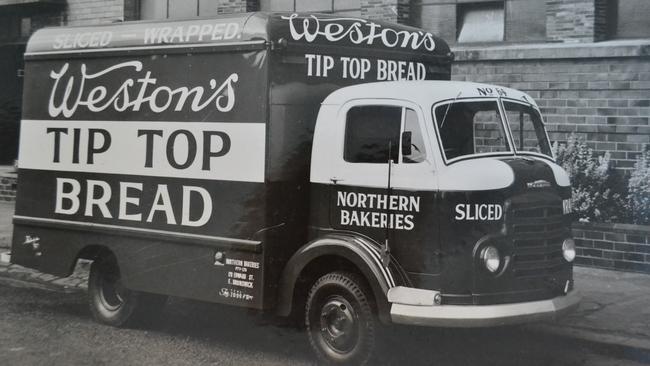
TWISTIES
OWNERSHIP: The Smith’s Snackfood Company, owned by PepsiCo (US)
The Smith’s Snackfood Company was purchased by PepsiCo in 1998.
WHERE IT STARTED: Twisties were developed by a Melbourne businessman and made in about 1950. Smith’s purchased the brand in 1964.
UNCLE TOBYS OATS
OWNERSHIP: Nestlé (Switzerland)
Nestlé acquired Uncle Tobys in 2006 from Burns Philp, owned by New Zealand businessman Graeme Hart’s Rank Group.
WHERE IT STARTED: Uncle Tobys was founded in Melbourne in 1861, originally under the name of Parsons Bros. In 1893, the Uncle Tobys oats product was introduced to the market by Clifford Love and Co.
VEGEMITE
OWNERSHIP: Bega Cheese (Australia)
Vegemite returned to Australian hands when Bega bought Vegemite from Mondelez International, a US company, in 2017.
WHERE IT STARTED: Vegemite was invented in Melbourne in 1922, when Australian businessman Fred Walker, of Fred Walker & Co., commissioned a chemist to create the spread. Vegemite first graced Australian shelves in 1923. It became partly American owned in the 1930s.
WEET-BIX
OWNERSHIP: Sanitarium Health Food Company (Australia)
WHERE IT STARTED: Weet-Bix was founded by Grain Products in Sydney in the mid-1920s. The company and brand were acquired by Sanitarium in 1928.
WEIS ICE CREAMS
OWNERSHIP: Unilever (British-Dutch)
Unilever acquired Weis in 2017 from the Weis family. At the time of the takeover, Unilever said Weis ice creams would continue to be made at its original Queensland factory in Toowoomba using locally sourced ingredients. The Weis family were last year left disappointed when Unilever closed the factory and moved production to its Minto factory in NSW, costing the regional community more than 90 jobs.
WHERE IT STARTED: Les Weis started it all in 1957 with his iconic Fruito Bar in Toowoomba, Queensland. The ice cream business remained an Australia-owned family company for 60 years.
WESTERN STAR BUTTER
OWNERSHIP: Fonterra (New Zealand)
New Zealand dairy group Fonterra acquired the Bonlac co-operative in 2003, along with the Western Star brand.
WHERE IT STARTED: The Western Star brand was established in 1926 at Cobden, Victoria.
WONDER WHITE AND HELGA’S BREAD
OWNERSHIP: Goodman Fielder, owned by Wilmar International (Singapore)
Goodman Fielder, one of Australia’s largest food processors, was acquired by Singapore agribusiness Wilmar and Hong Kong investment firm First Pacific in 2015. Wilmar announced it would buy out First Pacific in 2019.
WHERE IT STARTED: Goodman Fielder’s origins extend back to 1909 when Geo Fielder & Co. was incorporated in NSW.
ZOOPER DOOPER
OWNERSHIP: Lion, owned by Kirin (Japan)
Kirin bought Lion Nathan in 2009. It was merged with National Foods (owned by Kirin since 2007) to become Lion Nathan National Foods and later just became Lion.
WHERE IT STARTED: The Zooper Dooper was launched in 1971. As Lion puts it, “no Aussie childhood was complete without running through the sprinklers with a Zooper Dooper in hand”.
MORE
IMPORTED PORK PRODUCTS LABELLED ‘MADE IN AUSTRALIA’


